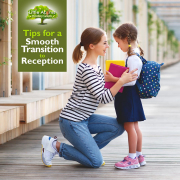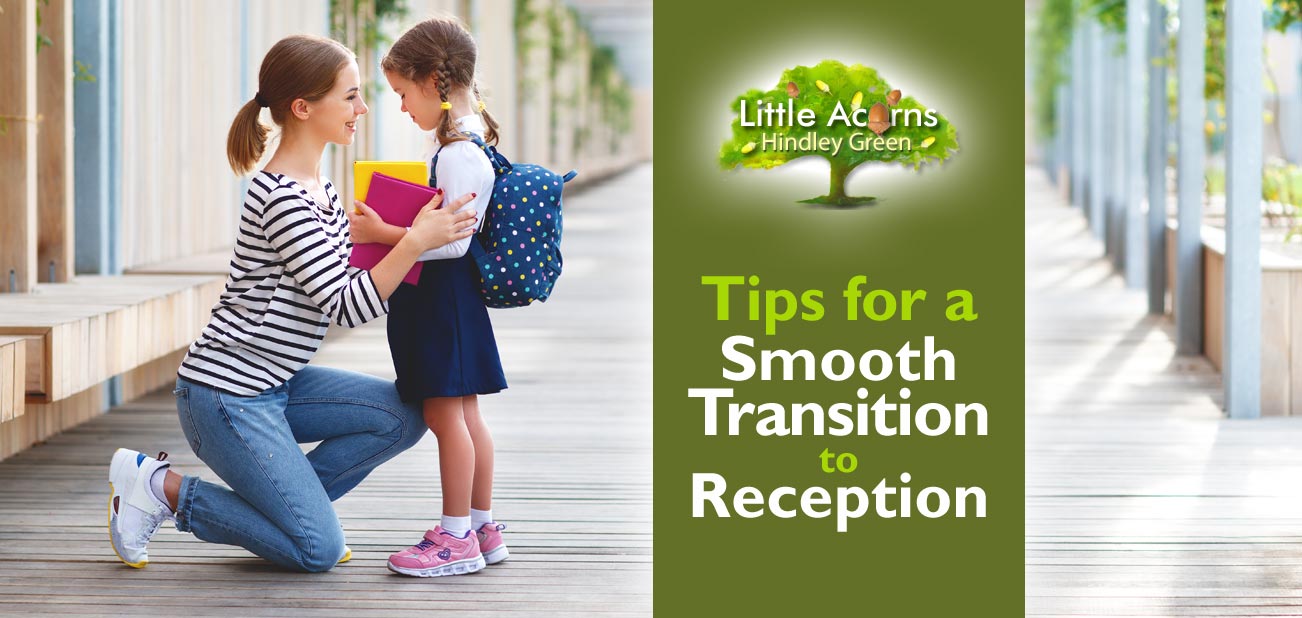
Starting school is a huge milestone for families. If you’re a parent or guardian of a child who will soon reach the age of 3 in the UK, you’ll need to make an application for your child’s primary school very soon. Today’s guide is designed to help you understand just about everything you need to know about the process of obtaining a school place for your child and what to expect on National Offer Day — specifically for primary school places.
Primary School Offers Day: 16 April*
There are two key ‘school offers’ days each year. The first arrives usually on the 1st of March* and is for secondary school places. The second, which we’ll focus on in today’s guide, usually arrives on the 16th of April* each year and pertains to offers for primary school places in the UK.
* The exact date may be slightly later if the usual ‘offer’ date coincides with a public holiday or weekend. In such cases, the offer date will be delayed until the next working day. Note, too, that applying late, by post, or ‘in-year’ (for a start date other than in the September term) is likely to result in offers being received at a later date.
Apply for a Primary School Place at the Right Time
Whether you want your under-five child to start school at 4 or 5 (see below), you should make the application for a school place when they are 3 or, at the very latest, when they have just turned 4.
Should Children Start School at 4 or 5?
Starting Primary School at Age 4
Most children in the UK start in ‘Reception’ year at primary/infant school at the age of 4. This is before the age required by law and usually starts in the September term. For these children, families will need to have applied for their place between September of the previous year and the 15th of January in the year they begin.
Deferring until Age 5
However, children born between the 1st of April and the 31st of August can legally begin school a little later if their parent/guardian/carer so chooses. This could be, for example, if the child’s parents believe the child is not yet ready for the challenges associated with school.
What Does the Law Say About Starting School?
The law states that children reach what’s known as Compulsory School Age in the UK on the 31st of either December, March or August following their fifth birthday (whichever arrives soonest). It’s worth noting, however, that schools and admission authorities have the right to decide whether children starting at five (rather than four) will begin in Reception year one year later than most other children of their age, or skip Reception completely and go straight into Year One with their matching age group. The child’s best interests will affect the decision, including factors like their individual needs and abilities. More information about deferring until five is available here.
Applying for a Primary School Place
You can register an interest directly with your primary school of choice and indeed they can usually give you information about how to apply. However, registering an interest does not guarantee your child a place even if the school is attached to the nursery/preschool your child already attends. Ultimately you normally need to make the formal application through your local authority and this is usually best done online, as outlined below.
To start an application for primary school for your child, go to this Gov.uk address, enter your postcode, and click the green ‘Find’ button. The site will then match you with your local authority. For example, for those near our nursery in Hindley Green near Wigan, it resulted in a button linked to Wigan Metropolitan Borough Council’s ‘Primary School Admissions’ page. This, as per its equivalents for other areas, gives lots of information about applying for a primary school place together with all the appropriate hyperlinks for applications, appeals, further information, and suchlike.
As part of your application, you will have the opportunity to confirm, in order, your topmost preferred primary schools. Subject to there being available spaces, the order of your preferences will be taken into consideration when places are allocated. However, other factors outlined later in this guide are also likely to affect your child’s offer.
Applying Late
If you miss the 15th of January deadline for standard primary school places with a September term start, the local authority’s site will give you access to a ‘late application form’. Note, however, that applying after the 15th of January means your application will be processed after those received on time. The effect this will have on your application is that you will have a lower chance of getting a place at your preferred school — as many places are likely to have been allocated before the local authority came to process your (late) application.
Changing Your Mind
For anyone who changes their mind about their preferred school choice(s), your local authority website will also give you options and guidance. This may include online options but some may also require the use of a late application form which, if used after the 15th of January, may also give you a lower chance of receiving an offer for your child’s preferred school.
Criteria Affecting Primary School Offers
Local authorities will first process applications made on time, so those stand the best chance of success. Late applications will be processed after all the ‘on time’ applications have been allocated places.
Either way, the criteria affecting whether a child receives a primary school place at their preferred school may also include factors like the following:
- Their home’s proximity to the selected primary school;
- Whether your child has a sibling already at the school;
- Whether you, the parent, have worked at the school (2+ years);
- Whether it’s a faith school matching your child’s religion;
- Whether the child is eligible for the Pupil Premium or Service Pupil Premium.
- … and other potential factors.
If, for any reason, your child is not offered a place at any of your preferred primary schools, your local authority will have to offer you a place at an alternative school. This will usually be the closest available school to your child’s home. However, it’s worth noting that such a scenario is quite rare, with only 1.4% of applicants not receiving offers from one of their ‘preferred’ schools in 2023.
Primary School Offers & National Offer Day
The majority of applicants, particularly those who applied on time, will receive primary school offers on National Offer Day, which arrives on 16 April or soon afterwards if that falls on a weekend or public holiday. Those who included an email address as part of their application will receive offers during that day while those who are informed via post may receive offers via 2nd Class post a couple of days or so later. However, some local authorities also allow parents to log into a portal to view primary school offers.
Accepting, Rejecting or Appealing a Primary School Offer
Primary school offer confirmations will include a deadline by which the offer must be accepted if that’s the parent’s intention. Failure to accept an offer by that date may mean that the primary school place is instead offered to someone else, for example, a child on a waiting list for that school (we’ll come to waiting lists shortly).
If you are one of the small proportion of families who did not receive an offer from a preferred primary school, you can appeal the decision and offer confirmations will include details about the appeals process. Learn more about appeals here. However, it’s usually wise to first accept any offer provided so that, if your appeal is rejected, your child has a school place to fall back on. Doing so should not affect the outcome of your appeal.
Waiting Lists
Waiting lists are an option for those families who:
- don’t receive an offer for a preferred primary school, or;
- receive no school offer at all (rare), or;
- decide they simply want to switch to a different primary school for one reason or another.
To apply to be put on a school’s waiting list, contact your local authority and perhaps also register your interest directly with the school itself, so they are aware. Having an existing school offer/place does not preclude you from going on an alternative school’s waiting list, by the way.
Good Luck from Little Acorns Nursery School, Hindley Green, Wigan
We hope you receive the ideal primary school place for your child when the offer day finally arrives.


The staff at Little Acorns Nursery in Hindley Green wish all families with children starting primary/infant school the best of luck on primary school offers day. We do hope everyone receives an offer for their preferred school.
We’re convinced that all preschoolers leaving Little Acorns to begin school will have the very best start, having become as ‘school-ready’ as possible during their time with us. This preparation will help them to really hit the ground running from the moment they arrive at school. For tips on how best to prepare your child for starting school, don’t miss our guide Tips for a Smooth Transition to Reception.
Meanwhile, if you have a baby, toddler or preschooler that requires high-quality childcare and a good ‘early years’ education near Hindley Green, Wigan, get in touch:
As well as offering a high-quality childcare service in Hindley Green, Wigan, WN2, we are also conveniently located for families in Bickershaw, Leigh, Atherton, Westhoughton, Ince-in-Makerfield, Platt Bridge, Tyldesley, and Bolton.




 The transition from preschool to Reception marks a significant milestone in any child’s life. It can be emotional for parents and, for children, it can be a period filled with excitement, curiosity, and perhaps a bit of apprehension. Ensuring a smooth transition involves a combination of careful planning, practical strategies and emotional support. With that in mind, today’s guide outlines more than twenty simple, actionable ways to ensure your child has a seamless transition and a positive start to school life.
The transition from preschool to Reception marks a significant milestone in any child’s life. It can be emotional for parents and, for children, it can be a period filled with excitement, curiosity, and perhaps a bit of apprehension. Ensuring a smooth transition involves a combination of careful planning, practical strategies and emotional support. With that in mind, today’s guide outlines more than twenty simple, actionable ways to ensure your child has a seamless transition and a positive start to school life. Use positive reinforcement to create a positive association with the idea of school. For example, highlight the exciting aspects of learning, making friends, playing new games, and discovering new things.
Use positive reinforcement to create a positive association with the idea of school. For example, highlight the exciting aspects of learning, making friends, playing new games, and discovering new things. Organise play dates with future classmates to build social connections before the first day. Encourage interactions with other children to develop essential social skills. Attending a nursery, preschool, or playgroup will provide excellent opportunities for this.
Organise play dates with future classmates to build social connections before the first day. Encourage interactions with other children to develop essential social skills. Attending a nursery, preschool, or playgroup will provide excellent opportunities for this. Foster self-reliance by allowing your child to perform simple tasks like dressing themselves, tidying up, using the toilet, and organising themselves. Also, assign small responsibilities to them at home to instil a sense of accountability and responsibility. Such skills will serve them well once at school.
Foster self-reliance by allowing your child to perform simple tasks like dressing themselves, tidying up, using the toilet, and organising themselves. Also, assign small responsibilities to them at home to instil a sense of accountability and responsibility. Such skills will serve them well once at school. Read age-appropriate books together, particularly those that introduce topics they’ll be introduced to in Reception class. This not only sparks excitement and teaches them new things but also helps children understand what to expect. Instil a love for reading through interactive reading sessions. Visit the library too and explore a variety of books.
Read age-appropriate books together, particularly those that introduce topics they’ll be introduced to in Reception class. This not only sparks excitement and teaches them new things but also helps children understand what to expect. Instil a love for reading through interactive reading sessions. Visit the library too and explore a variety of books. Ensure that your child understands basic time concepts, such as morning, afternoon, and evening. This, in tandem with our next tip below, will help your child better understand the structure of the school day.
Ensure that your child understands basic time concepts, such as morning, afternoon, and evening. This, in tandem with our next tip below, will help your child better understand the structure of the school day. Ensure your child can manage basic self-care tasks independently. Such skills will be invaluable to them once they have started school.
Ensure your child can manage basic self-care tasks independently. Such skills will be invaluable to them once they have started school. Ensure sufficient sleep by establishing a calming bedtime routine. This not only gets them used to a pattern but will also help them to maintain focus and energy levels once at school.
Ensure sufficient sleep by establishing a calming bedtime routine. This not only gets them used to a pattern but will also help them to maintain focus and energy levels once at school. The journey from preschool to the first day of school is a significant milestone for both parent and child. Preparing children for school involves a holistic approach that addresses emotional, social, and practical aspects. By incorporating these strategies into your family’s daily routine, you can contribute to a positive and confident transition for your child and set the stage for the most successful start to their school journey.
The journey from preschool to the first day of school is a significant milestone for both parent and child. Preparing children for school involves a holistic approach that addresses emotional, social, and practical aspects. By incorporating these strategies into your family’s daily routine, you can contribute to a positive and confident transition for your child and set the stage for the most successful start to their school journey.